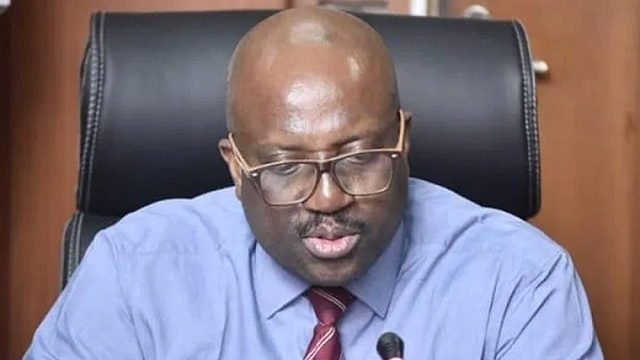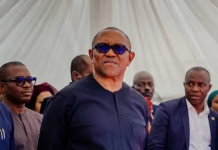Kemebradikumo Pondei, acting managing director of the Niger Delta Development Commission (NDDC), says the agency’s 2019 budget was padded with over 500 non-existing projects.
Addressing journalists in Rivers state on Tuesday, Pondei said a huge amount of money was appropriated for non-existing projects.
He was speaking in reaction to allegations of corruption levelled against the interim management committee (IMC).
He said the interim management committee made the discovery while investigating the 2019 appropriation to the commission.
President Muhammadu Buhari had in 2019 ordered a forensic audit of NDDC finances and the audit took effect in April.
The acting managing director said the commission’s 2019 budget will terminate on May 31 without any project executed in the Niger Delta during the fiscal year.
“We discovered that after NDDC forwarded its budget to the national assembly committees on NDDC, what was sent back to the commission was no longer recognisable,” he said.
“The 2019 budget was classically over padded, with almost 500 new projects inserted to it when it was sent back to us.
“We found out the budget appropriation was done in such a way that meaningful projects were allocated very little sums of money.
“It is unfortunate that the 2019 budget will expire on May 31 without any project executed in the region. It was passed two months to the end of its implementation period.
“It is worrying that rather than being a major intervention agency, the commission has been reduced to erecting street lights and constructing drainage, something local governments should do.”
Pondei said the alleged misappropriated funds by the IMC was from people “afraid that the ongoing forensic audit would reveal their corrupt dealings with past NDDC managements.“
He described the ongoing probe by the national assembly committees on NDDC as an attempt to “arm-twist and force the IMC to tamper with the forensic audit.”
“We have faced so much pressure from some members of the national assembly not to send certain files to forensic auditors. We refused because we fear this will compromise the process,” he added.
“Similarly, we have also faced pressure to pay for 132 jobs which have no proof of execution as well as pay out N6.4 billion for those jobs. We believe that an IMC set up as a cleansing structure cannot become part of an old story of rot.”












